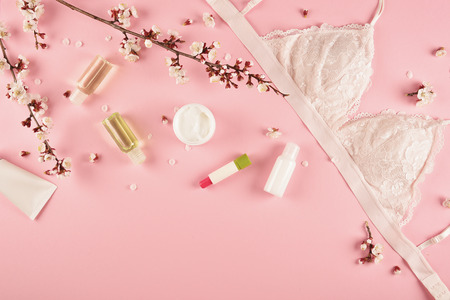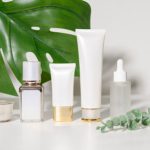1. Understand Your Skin Type
Before choosing the best anti-aging cream, its essential to understand your skin type. Different formulations work better for specific skin conditions, so knowing whether your skin is oily, dry, combination, or sensitive will help you pick the right product.
How to Identify Your Skin Type
If youre unsure about your skin type, try this simple test: Wash your face with a gentle cleanser and pat it dry. Wait for about an hour without applying any products. Then, observe how your skin feels and looks.
Skin Type Characteristics
| Skin Type | Characteristics | Best Anti-Aging Ingredients |
|---|---|---|
| Oily | Shiny appearance, enlarged pores, prone to acne | Lightweight formulas with retinol, niacinamide, and hyaluronic acid |
| Dry | Tight feeling, flakiness, rough texture | Rich creams with ceramides, glycerin, and shea butter |
| Combination | Oily in T-zone (forehead, nose, chin), dry on cheeks | Balanced formulas with peptides and antioxidants |
| Sensitive | Easily irritated, redness, allergic reactions | Mild ingredients like aloe vera, chamomile, and fragrance-free options |
The Importance of Choosing the Right Formula
Selecting an anti-aging cream that matches your skin type ensures better absorption and effectiveness. Using a formula that doesn’t suit your skin can lead to irritation or clogged pores. For example, heavy creams might be too much for oily skin but perfect for dry skin.
Tips for Testing Products
- Patch Test: Apply a small amount on your wrist or behind your ear before using it on your face.
- Avoid Harsh Ingredients: If you have sensitive skin, stay away from alcohol-based or heavily fragranced creams.
- Look for Multi-Benefit Creams: Some formulas address both hydration and anti-aging concerns.
Once you identify your skin type, you can confidently choose an anti-aging cream that works best for you. The right formula will enhance your skincare routine and help maintain youthful-looking skin.
2. Key Ingredients to Look For
Choosing the right anti-aging cream starts with understanding its ingredients. The right combination of active ingredients can help reduce fine lines, boost hydration, and improve skin elasticity. Here are some essential ingredients to look for:
Retinol: The Gold Standard for Anti-Aging
Retinol, a form of vitamin A, is one of the most effective ingredients for reducing wrinkles and improving skin texture. It promotes cell turnover, stimulates collagen production, and helps fade dark spots.
Hyaluronic Acid: Ultimate Hydration Booster
Hyaluronic acid is a powerful humectant that attracts moisture to the skin, keeping it plump and hydrated. This ingredient is perfect for all skin types, especially dry or mature skin.
Peptides: Strengthen and Repair Skin
Peptides are short chains of amino acids that support collagen production and skin repair. They help improve firmness and elasticity while reducing signs of aging.
Other Beneficial Ingredients
| Ingredient | Benefits |
|---|---|
| Vitamin C | Brightens skin tone and protects against free radicals |
| Ceramides | Strengthen the skin barrier and lock in moisture |
| Niacinamide | Reduces inflammation, minimizes pores, and evens skin tone |
| AHA/BHA | Exfoliates dead skin cells and promotes smoother texture |
Selecting an anti-aging cream with these powerhouse ingredients will ensure you get the best results for your skin type. Always check product labels and choose formulations tailored to your specific skincare needs.
![]()
3. Consider Your Specific Skin Concerns
When choosing an anti-aging cream, its important to focus on your specific skin concerns. Different formulations target different signs of aging, so selecting the right one can make a big difference in achieving the best results.
Identify Your Primary Skin Concerns
Anti-aging creams are designed to address various issues such as fine lines, wrinkles, dark spots, and loss of elasticity. Before purchasing a product, determine which concern is most important for you to treat.
Choosing the Right Ingredients for Your Needs
Each skin concern benefits from specific active ingredients. Heres a quick guide to help you choose the right formula:
| Skin Concern | Recommended Ingredients |
|---|---|
| Fine Lines & Wrinkles | Retinol, Peptides, Hyaluronic Acid |
| Dark Spots & Uneven Skin Tone | Vitamin C, Niacinamide, Alpha Arbutin |
| Loss of Elasticity & Firmness | Collagen-Boosting Peptides, CoQ10, Ceramides |
| Dryness & Dehydration | Squalane, Glycerin, Hyaluronic Acid |
Selecting a Multi-Benefit Formula
If you have multiple concerns, look for an anti-aging cream that combines several beneficial ingredients. Many products are formulated to target more than one issue at a time, making it easier to streamline your skincare routine.
Avoid Harsh Ingredients If You Have Sensitive Skin
If your skin is prone to irritation, opt for fragrance-free and hypoallergenic formulas with soothing ingredients like aloe vera, chamomile extract, and oat-derived compounds.
Selecting the right anti-aging cream based on your primary skin concerns ensures that youre giving your skin exactly what it needs for a youthful and healthy appearance.
4. Check Product Reviews and Dermatologist Recommendations
Choosing the right anti-aging cream can feel overwhelming with so many options on the market. To make an informed decision, take time to research online reviews and consult dermatologists for expert advice on the most effective products.
Read Online Reviews
Customer reviews can provide valuable insight into how a product performs in real-life situations. Look for feedback on reputable websites, beauty forums, and e-commerce platforms. Pay attention to common themes in reviews, such as effectiveness, texture, absorption, and any potential side effects.
What to Look for in Reviews
| Review Aspect | Why It’s Important |
|---|---|
| Effectiveness | Check if users noticed improvements in wrinkles, fine lines, or skin texture. |
| Skin Reactions | Look for mentions of irritation, redness, or breakouts. |
| Texture & Absorption | Avoid greasy or heavy creams if you have oily or combination skin. |
| Scent | If youre sensitive to fragrances, see if others mention strong scents. |
| Longevity | User experiences on how long it takes to see visible results. |
Consult a Dermatologist
A dermatologist can provide personalized recommendations based on your skin type and concerns. They can help identify ingredients that work best for your specific needs and suggest medically tested products that deliver real results. If you have sensitive skin or specific conditions like rosacea or eczema, professional advice is even more crucial.
Questions to Ask Your Dermatologist
- Which ingredients should I look for based on my skin type?
- Are there any anti-aging creams you personally recommend?
- Should I avoid any specific ingredients due to my skin condition?
- How often should I use an anti-aging cream for the best results?
- Can I combine an anti-aging cream with other skincare treatments?
5. Test Before You Commit
Before investing in a full-sized anti-aging cream, it’s essential to make sure it works well with your skin. Everyones skin reacts differently to ingredients, so testing beforehand can help you avoid irritation or breakouts.
Conduct a Patch Test
A patch test is a simple way to check if your skin will react negatively to a new product. Here’s how you can do it:
- Apply a small amount of the cream on a discreet area, like behind your ear or on your inner forearm.
- Wait 24 hours to see if redness, itching, or irritation occurs.
- If there are no negative reactions, the product is likely safe for your face.
Try Sample Sizes First
Instead of committing to a full-size product right away, consider trying sample sizes first. This allows you to test the texture, scent, and effectiveness before making a big investment.
Benefits of Using Sample Sizes
| Benefit | Description |
|---|---|
| Cost-Effective | Saves money by letting you try before buying a full-size version. |
| Minimizes Waste | Reduces waste if the product doesn’t work for your skin. |
| Travel-Friendly | Convenient for on-the-go use without carrying bulky products. |
| Helps with Product Selection | Gives you time to determine if the cream suits your skin type and needs. |
Where to Get Samples?
You can find sample sizes at beauty stores, online retailers, or by requesting them from skincare brands. Some companies even offer free samples with purchases!
Final Tip: Be Patient
Skincare takes time to show results. Give any new anti-aging cream at least a few weeks before deciding if it’s right for you. Testing before committing ensures you’re making the best choice for your skin.


